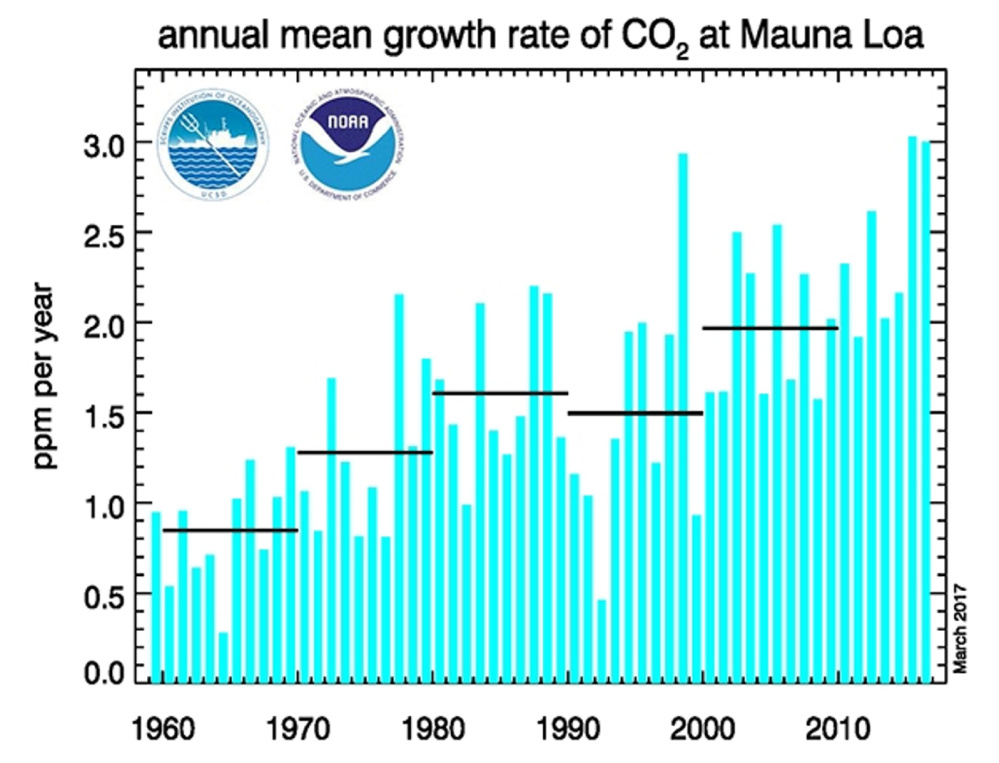The Clean Air Act was passed into law by Congress in 1970 because poisons were pouring more or less unchecked into our air. Meanwhile, a fire on the Cuyahoga River in Ohio in 1969 — not its worst ever, by a long shot — sparked national outrage about filthy water. Maine Sen. Edmund Muskie, long sickened by the pollution of the Androscoggin River, followed up his fight for cleaner air with a fight for cleaner water. The Clean Water Act was passed into law by Congress in 1972.
For a long time, these were seen as good, beneficial efforts. In 2015, regulations were introduced to clarify terms in the Clean Water Act and to address the fact that serious, damaging pollution occurs in minor as well as major waterways and needs attention. This new guide is called the Clean Water Rule.
Last month, President Donald Trump called it a “very destructive and horrible rule” and ordered that it be reviewed for “elimination.”
It’s hard to see how the word “horrible” applies, here, unless your only measure of value is money. If the rule costs money, it’s bad. If it saves or makes money, it’s good.
If on the other hand you value health, cleanliness and the woods, fields, streams and Earth where you live, then regulations that protect these things from real threats are not “horrible.” They might in some cases go further than they need to, or they might not go far enough, or they might shoot wide of their targets. But the only way they are “horrible” or “destructive” is if your measure of good and evil is money gained or lost.
Here’s an example of “destructive”: The Trump administration wants to require that for every new federal regulation enacted, two must be eliminated. Now, fiscal balance sheets work in black and white (or red, as it were), but ecological systems do not. Their balances are so complex that Trump’s dictate amounts to “managing our federal regulatory system as if it were a children’s game,” as one congressman put it. Such a rule would lead to ecological destruction.
I wonder if that’s where we are headed. Here are a few more recent developments that point in that direction:
• The president’s draft federal budget proposed cutting the Environmental Protection Agency’s funding by 31 percent. The EPA, just as a reminder, is responsible for enforcing the clean air and clean water laws. The cuts would sharply reduce or eliminate so many woods, water and cleanup programs that officials and scientists worry the environmental and economic impacts could, for example, “devastate all manner of environmental protection in Maine.” For another example, the Great Lakes Restoration Initiative — which grapples with decades of severe, ongoing, human-induced environmental problems in the lakes — would lose 97 percent of its funding.
• Trump proposed a 16 percent budget cut to the Commerce Department, which would include hundreds of millions in cuts to the National Oceanic and Atmospheric Agency’s funding, slashing coastal programs intended to deal with rising sea levels and eliminating the Sea Grant program. The Department of the Interior’s budget (parks, forests) would be cut by 12 percent.
• Trump rescinded an EPA rule restricting how much damage coal mining debris can do to water.
• Interior Department Secretary Ryan Zinke revoked a ban on the use of lead ammunition and fishing tackle on federal lands. About 22 million wild animals die every year from lead poisoning, which is why the ban was enacted in the first place.
• The EPA announced plans to withdraw rules requiring greater fuel efficiency for future cars and light trucks. Cars and trucks pour billions of tons of greenhouse gases, notably carbon dioxide, into the atmosphere every year, stoking global warming.
• NOAA reported this month that carbon dioxide levels measured at its Hawaii observatory in 2016 rose at a record level for the second year in a row. “The rate of CO2 growth over the last decade is 100 to 200 times faster than what the Earth experienced during the transition from the last Ice Age,” a NOAA official said.
• The new EPA director, Scott Pruitt, said this month: “I would not agree that (human activity) is a primary contributor to the global warming that we see. … We need to continue the debate and continue the review and the analysis.” There is hardly any disagreement among scientists, or within his own agency, that human activity is a primary cause of global warming. The evidence for it is constantly accumulating, being reviewed and analyzed, and showing the same near-unanimous conclusions.
• Contrary to a Backyard Naturalist reader’s recent claim that “the public don’t believe in global warming,” after Pruitt’s remarks EPA telephone lines were jammed with so many callers objecting to his statement that message boxes filled up and extra staff were assigned to try to handle the calls.
• You may or may not want to look at the House Committee on Science, Space, and Technology’s website, which boasts about its passage of the Honest and Open New EPA Science Treatment Act of 2017. This bill masquerades as a full-disclosure law on the science used to help shape EPA protections but, if enacted, will mostly make it difficult for actual scientists, as opposed to, for example, oil companies whose main or only concern is their money, to shape the agency’s conclusions.
• Meanwhile, in other parts of the world where health, cleanliness and the condition of the Earth where we live are of at least some concern, China canceled plans for 100 new coal-fired power plants; India set a goal of quadrupling the amount of renewable energy it generates by 2022; and the Philippines closed 23 mines because they damage watersheds and cause coastal silting.
How did Clean Air Act and Clean Water Act rules go from necessary to the public good to “horrible”? It kind of makes you wonder if wisdom, temperance, trust, honesty, courage, justice or, let’s say, piety for nature have any currency at all in the Trump administration’s financial-balance-sheet morality. It doesn’t look like it. And a glance through history will tell you that when the core, perennial moral values melt, destruction ensues. Especially when the replacement value is avarice.
Dana Wilde lives in Troy. His book “Summer to Fall” is available from North Country Press. You can contact him at naturalist1@dwildepress.net. Backyard Naturalist appears the second and fourth Thursdays each month.
Send questions/comments to the editors.




Success. Please wait for the page to reload. If the page does not reload within 5 seconds, please refresh the page.
Enter your email and password to access comments.
Hi, to comment on stories you must . This profile is in addition to your subscription and website login.
Already have a commenting profile? .
Invalid username/password.
Please check your email to confirm and complete your registration.
Only subscribers are eligible to post comments. Please subscribe or login first for digital access. Here’s why.
Use the form below to reset your password. When you've submitted your account email, we will send an email with a reset code.